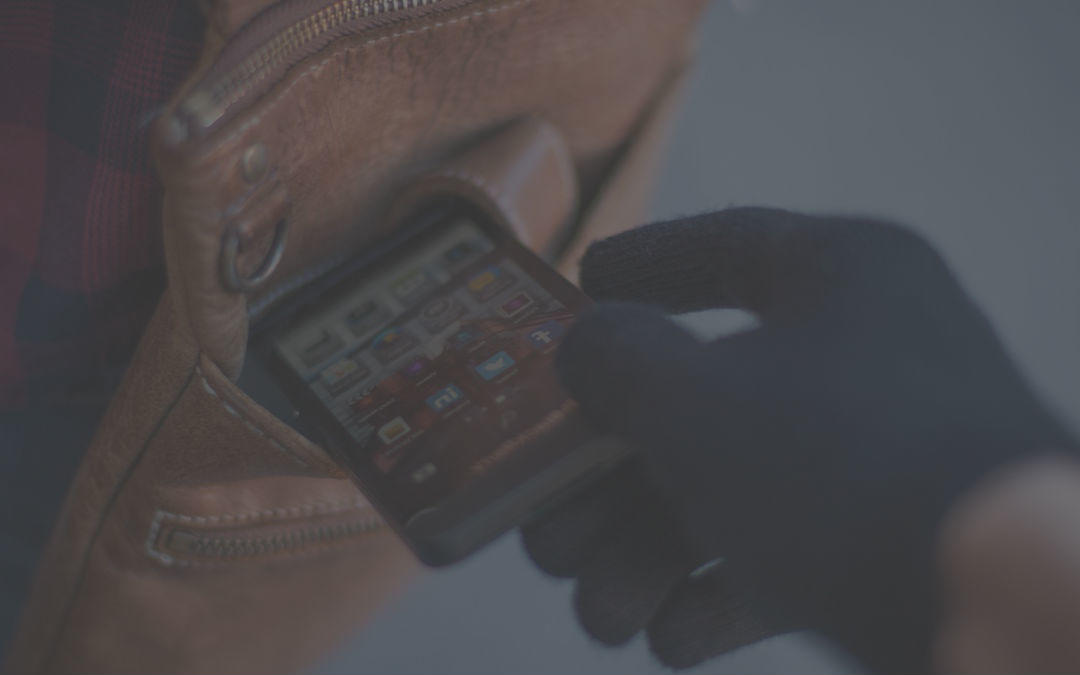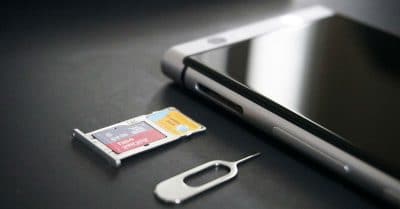All You Need to Know About Stolen Phones
A mobile phone is not only a large financial investment but for many of us, our phones also contain plenty of personal data. However, it's a sad truth that mobiles get stolen every day, in fact around 10,000 phones are taken in the UK every 24 hours. A device that's small enough to fit into your pocket might be convenient, but it's also a thief's dream. But if you are unfortunate enough to get your phone stolen, what exactly are you supposed to do? We're taking you step by step through the process of what to do when you find your phone missing.
Step One: Phone Tracker and Data Wiping
If you were smart enough to be prepared for this eventuality by downloading and enabling a phone tracker app, then here is where your foresight pays off. Of course, not everyone will have one of these apps, and if you don't, then simply proceed to step two. iPhone owners should follow Apple's find my iPhone instructions, whilst Android users will need to follow the instructions for whatever app they downloaded.
Your task is two-fold. Firstly, find out where your phone is, after all, there's always the possibility that it's simply lost and not stolen. Secondly, if it's not simply lost, use your phone tracker app to wipe your personal data from the phone itself. This will help prevent identity theft, stop the thief using your social media accounts, and mean that any apps containing credit card info (such as an Amazon shopping app) can't be used.
Pro Tip: Do NOT attempt to track thieves yourself. If you have a location for your phone, give it to the police, but do not risk your own safety by trying to reclaim your mobile.
Step Two: Report the Theft to Your Operator
You now need to call your mobile operator and report your phone stolen. This will allow your operator to block your SIM card, meaning thieves can't run up huge bills (which you may end up being responsible for, more on that below). You should also ask your operator for your phone's IMEI number, a number that identifies each individual phone. You will need this number for your police report. The contact numbers for major UK operators are:
You may also wish to ask for your call to be logged, to write down the name of the person you speak to and the time of the call, and even to send a follow-up email reporting the theft. You may need this information later if you wish to dispute charges on your bill (see below).
Step Three: Report the Theft to Local Police
Once you've spoken to your operator you'll need to report the theft to police. We'll be honest here and say that it's unlikely the police will investigate matters, but a police report is still important for two reasons. Firstly, if you have any form of insurance you'll need confirmation of a police report before you can claim. Secondly, should thieves happen to run up a bill on your phone and you wish to dispute the charges, you'll again need confirmation that you reported the theft to police.
Do NOT call 999. Call 101 to be connected to a non-emergency line who will, in turn, connect you to your local station. You can also go down to your local station in person. You will need the IMEI number that you got from your operator. Be sure to get the crime reference number from the police officer you speak to, as you'll need this to make insurance claims or dispute rogue charges.
Step Four: Make an Insurance Claim
If you have insurance for your mobile you can now make a claim. You'll need the crime reference number mentioned above in order to do this. There are a few ways that mobile insurance works, so you may have insurance even if you think you don't. You may have mobile insurance if:
- You bought specific mobile insurance either through your operator or through an independent insurer
- You bought your mobile using a credit card (many credit card companies insure purchases automatically)
- You have homeowners insurance that includes portable possessions
If you have specific mobile insurance you'll need to contact your operator or insurer, for credit card claims contact your credit card company, and for home, insurance claims contact your insurance company.
My Contract Phone Was Stolen But I Have No Insurance – What Can I Do?
If you don't have any form of mobile insurance then your only option is to replace the handset yourself (either by using an old phone or buying a new SIM-free device outright) and continue paying the contract until the minimum term finishes. Many network providers offer deals on like new or refurbished devices for this very problem.
What Now?
In terms of your SIM card and phone, you're probably going to need replacements. Your mobile operator will provide you with a replacement SIM card, though they may charge a small admin fee for doing so. As for your phone, the onus for the handset is on you. You will need to buy a new mobile, either using insurance money or straight out of pocket. If you did not get a mobile on your operator contract, or if your operator contract has run for more than two years, you may be able to get a phone through your operator on a pay monthly basis.
Pro Tip: be aware that if your mobile was an incentive phone (a phone you got when you signed your mobile contract) you will be required to keep paying the monthly instalments for it. You will continue paying the monthly price for the phone until the balance is paid off whether you still have the phone or not!
Your Next Bill
It is important that you monitor your next couple of mobile bills to ensure that there aren't excessive charges from thieves using your phone. You may or may not be required to pay these charges, even if you didn't make the calls. In the case of O2, Vodafone, EE, Three, and Virgin Media customer liability is capped at £100. This means that you are not required to pay anything over £100. However, you will be required to pay anything up to £100, again, whether you made the calls or not. Other UK operators do not have such a cap, meaning that technically you can be responsible for all charges up until the point that you reported the theft to the operator.
If your phone bill is unfairly high due to a stolen mobile you may wish to dispute the charges (even if they're below that £100 cap that some operators use).
Disputing Your Bill
Operators are NOT required to wipe charges from your mobile bill made before you reported your phone stolen to them. But many of them will. Your first stop when you receive a bill should be to call your operator's customer service line and talk to an agent. In many cases, this will clear up the problem. Remember to keep on hand information from when you reported the phone stolen, including the time and date of your initial call and the name of the person you spoke to.
Should a call not work, then your next step is to write a letter to your operator. This letter should include:
- Your name, address and telephone number
- Your account number or customer reference number (which should be on your bill)
- A copy of the bill you're disputing, with the individual charges you're disputing clearly marked
- An explanation of why you're disputing these charges (your phone was stolen)
- Any evidence you have to show your phone was stolen (details of your initial call to report the stolen phone to the operator, date, time, name of agent spoken to, as well as date of your police report and crime reference number)
- A request for the operator to respond in 14 days
Should your operator not respond in 14 days, or should you feel that the response is unfair, you should contact the ombudsman for further help. There are two ombudsman services for mobile providers: Ombudsman Services: Communications, or Cisas. Check the web page of your operator to find out which of the two they belong to.
Pro Tip: The decision of an ombudsman is binding, so you will have to do whatever they decide. If they find you in the wrong, this may mean paying not only the bill but also late charges or admin fees. Only contact the ombudsman if you are sure you are in the right.
Theft Prevention
In the future, you may wish to be prepared in case your phone should be stolen. There are a few things that you can do to speed up the loss reporting process should this happen to you again:
- Keep a file of insurance info, customer service contact info for your operator, and make/model of your phone, as well as your mobile's IMEI number (you can find this by dialling *#06# on your keypad)
- Download and/or enable phone tracking and data wiping apps (such as Apple's Find My iPhone, or Android Device Manager for Android)
- You may also wish to register your phone with Immobilise, part of the UK's National Mobile Phone Crime Unit, which should ensure your phone is returned to you if police find it
You should also be careful of where you put your phone, never leave it unattended, and don't put it in your back pocket or an easily accessible pocket in a bag. However, there is no way to be completely safe from theft. But if you're prepared, then at least you should avoid a thief getting your personal data, and shouldn't have to pay high charges.




